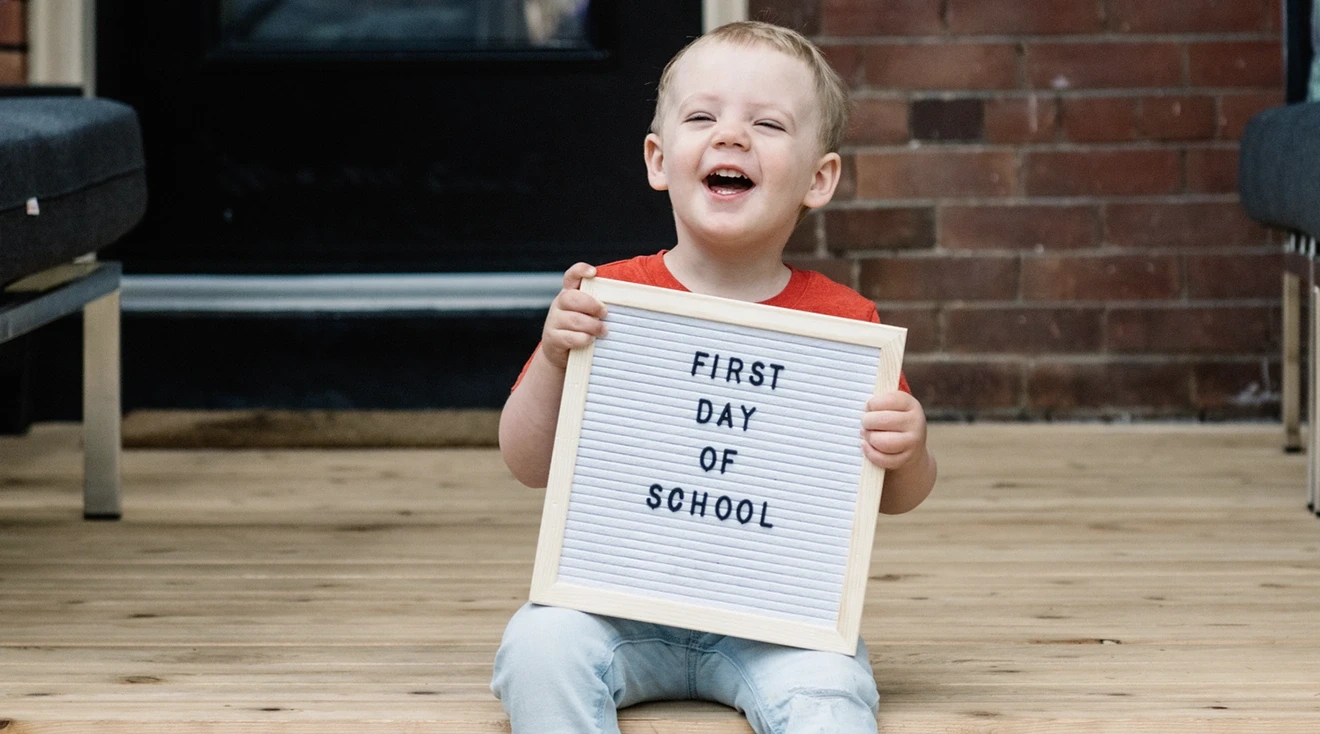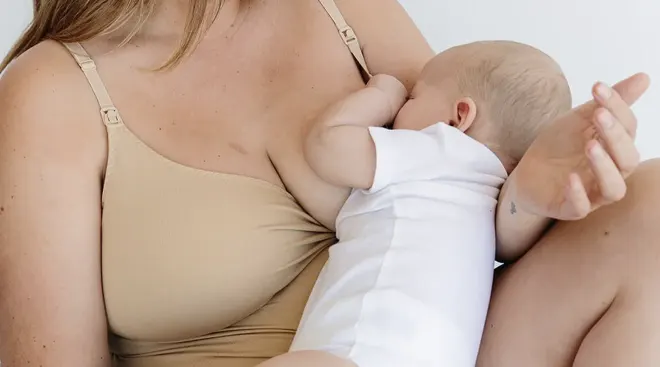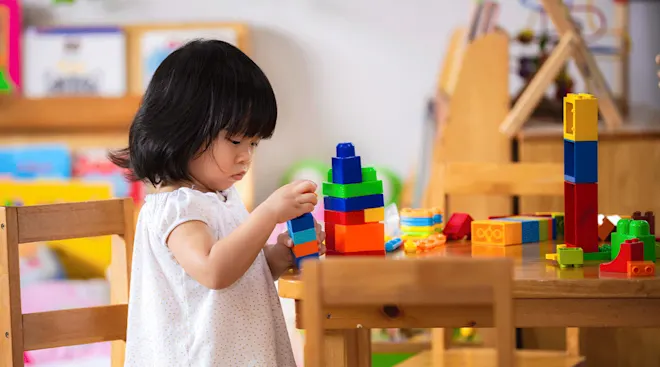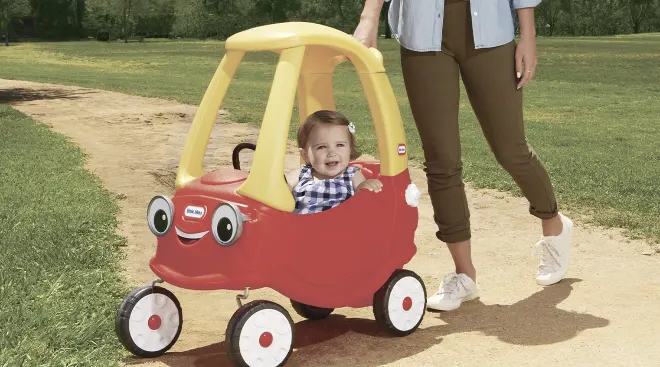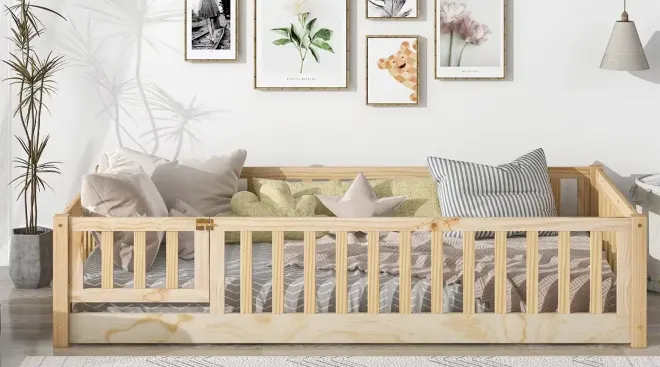How to Prepare Your Toddler for the First Day of Preschool
Of all your child’s firsts—first wobbly steps, first time down the slide, first airplane ride—the first day of preschool is one of the most anticipated milestones. It’s an exciting moment for you and your little one, but it can also be daunting. There are many questions to answer: What age should your kids start preschool? How do you choose the right school? What do you pack for preschool? And how do you prepare your child for that all-important first day? We checked in with some early-childhood experts for tips to make the transition a smooth one.
The typical preschool age range is 3 to 5, although some programs start earlier. But the decision about when a child should start preschool is an individual one for each family, says Karen Hovav, MD, FAAP, a pediatrician at Cedars-Sinai Medical Center in Los Angeles. She adds that the ideal timing often depends on whether your child has had opportunities to learn social skills at home.
“One way to think about it is if a child is an only child without much access to cousins or regular playdates, preschool can be an especially important place for learning social skills, and in that case I’d start earlier rather than later, around 2-and-a-half or 3,” Hovav says. “Some toddlers are a bit bored at home, and it’s much easier to get exposure to lots of different activities—painting, music, playgrounds, storytime [and more]—in a preschool setting.”
To put it plainly, preschool helps prepare your toddler for real life. “It’s a beautiful opportunity for children to become autonomous, to explore a world set up exclusively for their age and discover who they are in the context of a peer group,” says Kim Israel, owner and director of The First School, a preschool in Santa Monica, California. “All of life’s big issues come up during the preschool years: how to make a friend, what to do when a friend is too rough, how to get your needs met.”
Here are a few other benefits of preschool:
- Social-emotional skills. Hovav says preschool is the perfect time for children to learn skills such as regulating their emotions when they’re upset, dealing with conflict and learning to play well with others. “I highly recommend play-based approaches to education, since play has so much to teach children, when it’s structured and also unstructured,” Hovav says. “Didactic or academic learning is probably less important, since the social-emotional groundwork lays the foundation for being a solid learner later on.”
- Executive-functioning skills. In preschool, your child can learn skills such as following directions in a group setting, dealing with multiple distractions and transitioning from activity to activity, says Jill Spivack, LCSW, a sleep consultant and co-founder of Sleepy Planet Parenting. “These are key abilities in developing self-esteem and self-efficacy.” Delaying gratification—aka waiting until snacktime to eat the Goldfish—is another important executive-functioning skill children develop in preschool, she says.
- Independence. Preschool requires children to separate from their parents and trust that other adults can take good care of them, Spivack says. It allows them to practice problem-solving, build gross and fine motor skills, and participate in creative projects. All of these skills are confidence builders, Spivack adds.
Your child will have an easier time transitioning to preschool if they show basic readiness in a few key developmental areas. Here are a few factors to think about:
- Ability to separate from you. It might be a gradual process, but your child should “be able to cope with the parental separation that preschool ultimately requires,” says Spivack. If they’ve never been apart from you, it’s a good idea to let them practice spending time with other caregivers.
- Communication. Your child should be able to communicate their needs and understand what’s being asked of them, says Spivack. “A child should have some basic understanding of where they are, who can help them, where you’ll be when they’re at school and when you’ll come back,” she says. “Without this basic ability to understand and communicate, preschool can be frightening and confusing for the child and can create real anxiety.”
- Basic emotional regulation. We can’t expect too much from a 3-year-old in this respect. But Spivack says it helps if your child understands basic emotions. “Some children have learned how to calm themselves to some extent when they have big feelings, while others may need a bit more ‘co-regulation’ by a helpful grown-up.” Let your teacher know if your little one needs a bit more help in this department.
- Understanding boundaries. Before they start preschool, it’s important to begin to teach your child impulse-control skills such as taking turns, says Spivack. “They must also learn that hitting, biting and pushing are no-no’s,” she says.
- Flexibility with sleep. Spivack points out that most 2-year-olds still need a daily nap, usually around 1 to 3 p.m. “Pay attention to whether your child needs their nap, and, if so, an afternoon program, which may require your child to drop their nap completely, may not be appropriate for children under 3.”
- Potty training. Some schools require children to be potty trained when they start, says Spivack. If your child hasn’t mastered the potty yet, you might want to look into a school that doesn’t have this requirement. “Pushing a child before they’re ready to be potty trained can really backfire,” she says.
- Basic self-care skills. Is your child feeding themselves? Can they dress themselves? Do they clean up their toys and perform simple chores? Spivack advises practicing some of these everyday tasks before preschool begins.
There are plenty of concrete ways to prepare your child for the transition to preschool—and a little prep will go a long way in making sure they (and you!) are comfortable on their first day. Here’s what the experts recommend:
- Practice separating. Hovav suggests helping your child get used to having another caregiver take care of them. “Having grandparents or a babysitter take over for a few hours is a good way to get them comfortable with the idea that other loving caregivers can provide a safe space for them, and that [you’ll] always come back,” she says.
- Visit the school ahead of time. Get to know the school, teachers and routine as much as you can, advises Spivack. “Ask the school in advance what the plan for the first day will be—including what drop-off will look like, whether [you’ll] be able to stay while [your] child adjusts before separating or the structure of activities. This information can help children immensely to know what to expect, which helps to calm those little nerves,” she says. Scheduling a playdate with a future classmate is also a good idea.
- Practice basic skills. Preschool is a place for your child to learn a ton of new skills—but you can also help them become more confident by working on their gross-motor, fine-motor and language skills before school starts, says Spivack. They don’t need to know their ABCs yet, she notes, but, “working on language skills around body parts, animal names, household objects, vehicles, colors and shapes, seasons, weather and days of the week can all be very helpful.” Working on puzzles will further develop their fine-motor skills, and activities like running, jumping and throwing a ball will help with gross-motor skills.
- Take a toddler class. If your preschool offers a toddler program for the pre-preschool crowd, try to go, Spivack says. It’ll allow your child to get to know the school, meet other children and become more comfortable with the transition to preschool. “If you go, take lots of pictures of your child having fun engaging in activities there, so you can show them the pictures to remind them of where they’ll be going to school,” she says.
- Read (and create) books about preschool. “[Reading books] helps children start to emotionally prepare for school and gives them a sense of what’s coming and how they might feel as they make the transition and learn to separate from their primary caregiver,” Spivack says. Two books she recommends: The Kissing Hand by Audrey Penn and Rosie Goes to Preschool by Karen Katz. But Spivack says her favorite tool is creating a personalized book with as many specifics as possible. “The purpose of making personalized books is to not only empower kids by helping them understand the change that’s happening, but also to give them an avenue for processing their feelings about that change,” she says.
- Play it up. Israel suggests playing “school” with your child to help prepare them for the real thing. “Get the stuffed animals to reenact group time,” she says, or have a picnic from the lunchbox your child will be using for school.
- Support your child’s feelings. Avoid the temptation to tell your child not to feel anxious about what’s happening, says Spivack. “This creates an internal conflict for them because they may very well be feeling those things,” she explains. “Instead, give your child explicit permission to have any feelings they have about the situation, and let them know that you’ll support them in expressing those feelings and also keep them company while they have them, without trying to fix or change them.”
- Develop a daily goodbye ritual. Bonus points if it’s goofy. Hovav says the “push send-off” worked for her. “My kids would literally push me away,” she says. “I’d exaggerate how strong they were by jumping away, making them laugh and forget for a second that they were saying [goodbye]. Doesn’t hurt that it makes them feel strong, and makes it seem like they’re in control and sending us away rather than the reverse.”
Starting preschool is a big transition, so don’t be surprised if it’s accompanied by some big feelings to match—not to mention, a few challenges. But remember that your child is going to grow in ways you can’t even anticipate, developing independence and learning crucial life skills along the way. And that’s extremely awesome.
Plus, more from The Bump:
Karen Hovav, MD, FAAP, is a pediatrician at Cedars-Sinai Medical Center in Los Angeles. She earned her medical degree at the Tel Aviv University School of Medicine.
Kim Israel is the owner and director of The First School, a preschool in Santa Monica, California.
Jill Spivack, LCSW, is a sleep consultant and cofounder of Sleepy Planet Parenting. She developed her expertise in parenting while working as a psychotherapist in the early-childhood department at Cedars-Sinai Medical Center in Los Angeles.
Centers for Disease Control and Prevention, Preschooler (3-5 Years Old), February 2021
Navigate forward to interact with the calendar and select a date. Press the question mark key to get the keyboard shortcuts for changing dates.
































